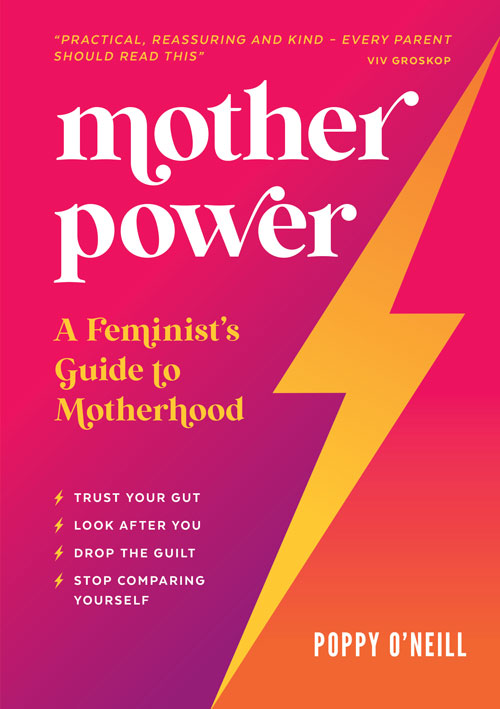
by Poppy O’Neill
best-selling author of mental health books
for children, teens and adults
We butt up against other people’s emotions every day, in real life and online. People tend to feel a lot more comfortable sharing their emotions and opinions with women, and once you have children in tow, some take it as an open invitation to provide feedback on everything from your appearance to your children’s behaviour.
Having other people’s emotions put upon you can make you feel like they are then your problem to solve, which can cause a lot of anxiety.
Gender stereotypes and other people’s emotions
From very early on girls’ emotions are treated as less important than boys. A study carried out by Sussex University showed that adults respond to babies’ cries differently depending on their sex, with greater sympathy shown to boys.
Gender stereotyping is the cause of many of the ways women are on the back foot socially, psychologically and economically. One of the most common ways gender stereotypes manifest psychologically and emotionally in women is often known as ‘people-pleasing’.
If you’re a people-pleaser, the prospect of conflict, being disliked or even disagreement can feel uncomfortable and sometimes even threatening. For people-pleasers, it seems like a better option just to go along with what other people think and want, even at the expense of their own needs. This disconnects us from what we truly think and want – we lose touch with ourselves by focusing on other people.
The first step to unlearning people-pleasing is to recognise it within yourself.
If you:
• Apologise often
• Struggle to say no
• Don’t admit when your feelings are hurt
• Often assume people are angry or disappointed with you
…you have people-pleasing tendencies. Once you can recognise people-pleasing in yourself, you have the power to take control. It’s not easy, but it’s worth the hard work. The secret is to learn to pause, name the feeling and breathe through the discomfort.
Other people’s emotions are nothing to do with you
The belief that we are responsible for the actions or emotions of other people is common among women. We’re brought up to be nice and to put others’ feelings ahead of our own. Becoming a mother can reinforce this because our children’s emotions are, to a certain extent, tied to our own. As we’re solely responsible for these tiny human beings for such a big proportion of the time, our own wellbeing feels like it’s dependent on keeping them calm and happy.
The key to letting go of the idea that other people’s emotions are our responsibility is to build a sense of trust. When you trust other adults to handle their own emotions and look after themselves, you can let go of some of that guilt that comes when you cancel plans, break bad news or give criticism.
What’s more, when you hurt your own feelings in order to save someone else’s, that’s not actually you being kind – it’s you trying to avoid your own discomfort. Many of us would much rather inconvenience ourselves than someone else, because the latter brings up complex feelings of guilt and shame that come from defying the stereotype of the selfless woman.
When you trust someone to deal with life like a grown-up, you’re showing them – and yourself – respect.
What you can and can’t control
Other people’s emotions are not within your control. Thank goodness they’re not, because it would be exhausting if they were! Focusing on what you can control, rather than what you can’t, can lead to better mental health and higher self-esteem.
Psychologists call the sense of how much power we have over our own lives a ‘locus of control’. Everyone has a locus of control that falls somewhere on a spectrum between internal and external.
Internal locus of control: The belief that you have some power over the events in your life and the choices you make.
External locus of control: The belief that events in your life and your responses to them are controlled exclusively by other people.
Of course, some things truly are out of our control, but the more we focus our attention on what we have the ability to change, the greater our sense of power, responsibility and safety in the world. For example, if it rains on your birthday you can’t stop the weather, but you can dress in waterproofs or stay inside. Those who focus on the weather will feel worse than those who focus on how they’ll adapt to the less-than-perfect conditions.
When you’re feeling stressed out by other people, it can help to remind yourself of what you can and can’t control.
What I can control
My responses
My actions
My boundaries
How I take care of my emotions.
What I can’t control
Other people’s emotions
Other people’s thoughts
Other people’s actions
Other people’s boundaries.
It’s natural to care about what other people think of us and how they feel, but putting other people’s feelings above our own is a recipe for resentment and burnout. Remember – you don’t need to make sense to others, and you can trust other adults to be responsible for their own emotions.











